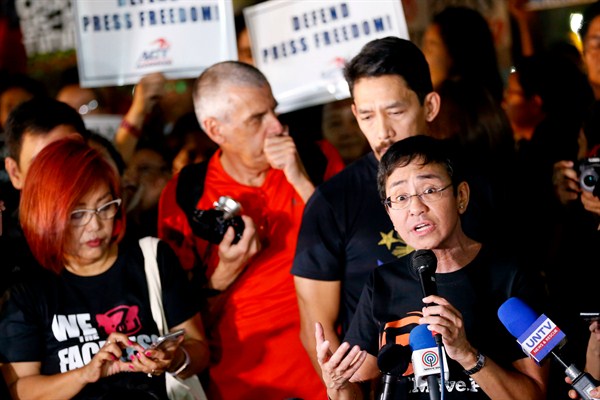Philippine President Rodrigo Duterte has gained international notoriety for his crass language and ruthless anti-drug campaign, which has resulted in thousands of Filipinos being assassinated by police and vigilantes, their bodies dumped in the streets without the benefit of a trial or any semblance of due process. But the populist, and very popular, leader is quickly becoming known for another frontal assault on the practices of a free and open democracy by relentlessly attacking his critics in the media.
Until Duterte came to power in 2016, the media environment in the Philippines was relatively free and diverse. Duterte has steadily increased the pressure on media he deems unfriendly, unleashing the power of the state against journalists and publishers, along with the withering backing of his supporters on social media, with the single-minded purpose of destroying and silencing his detractors.
Duterte’s most recent target is a popular news website called Rappler. After months of attacks by the president and by his followers, and a determined push by the state’s solicitor general, the Philippine Securities and Exchange Commission announced on Jan. 11 its decision to revoke Rappler’s certificate of incorporation, or operating license, on charges that it violates the country’s rules banning foreign media ownership. Rappler can still appeal, but the commission could now force the website to shut down at any moment.

